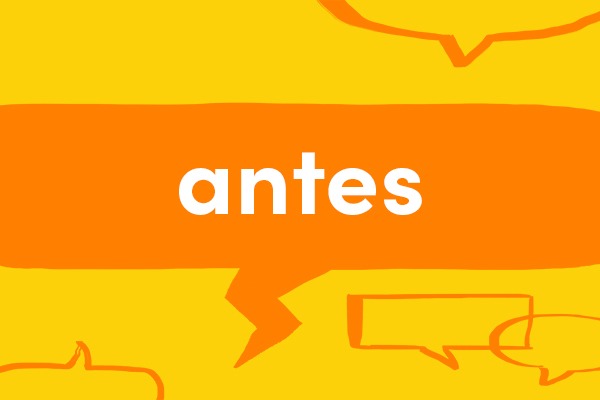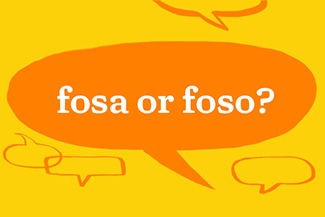This week’s Spanish word of the week is antes
Antes is an adverb that means before; first; soon and you can find how to pronounce it here:
function playAudio(url) { new Audio(url).play(); }Antes is a very useful word for describing events in time. For instance, referring to the past:
Esta película ya la he visto antes. I’ve seen this film before.
Llegó antes que yo. She arrived before I did.
Antes fumaba un paquete al día. He used to smoke a pack a day.
When referring to an event in the future, you generally translate it as first:
Parece que llegarán ellos antes. It looks like they’ll get there first.
Antes de is the basic phrase you need to convey the idea of something happening before something else:
antes de la cena before dinner
You use the infinitive after antes de if the subject of the verb in both clauses is the same:
Tomamos un vaso de leche antes de acostarnos. We had a glass of milk before going to bed.
But if the two subjects are different, you use antes de que and the subjunctive:
Tengo algo importante que decirte antes de que te vayas*. I’ve got something important to tell you before you go.
(* = subjunctive)
In some set phrases that it’s worth your learning by heart it also has the meaning of soon:
lo antes posible as soon as possible
Se lo entregaremos lo antes posible. We’ll deliver it to you as soon as possible.
cuanto antes as soon as possible, very soon
Confía en llegar a un acuerdo cuanto antes. He’s confident of reaching an agreement very soon.
cuanto antes mejor the sooner the better
Tenía que encontrar casa. Cuanto antes mejor. I had to find a house. And the sooner the better.
Come back next week to learn a new Spanish word!



